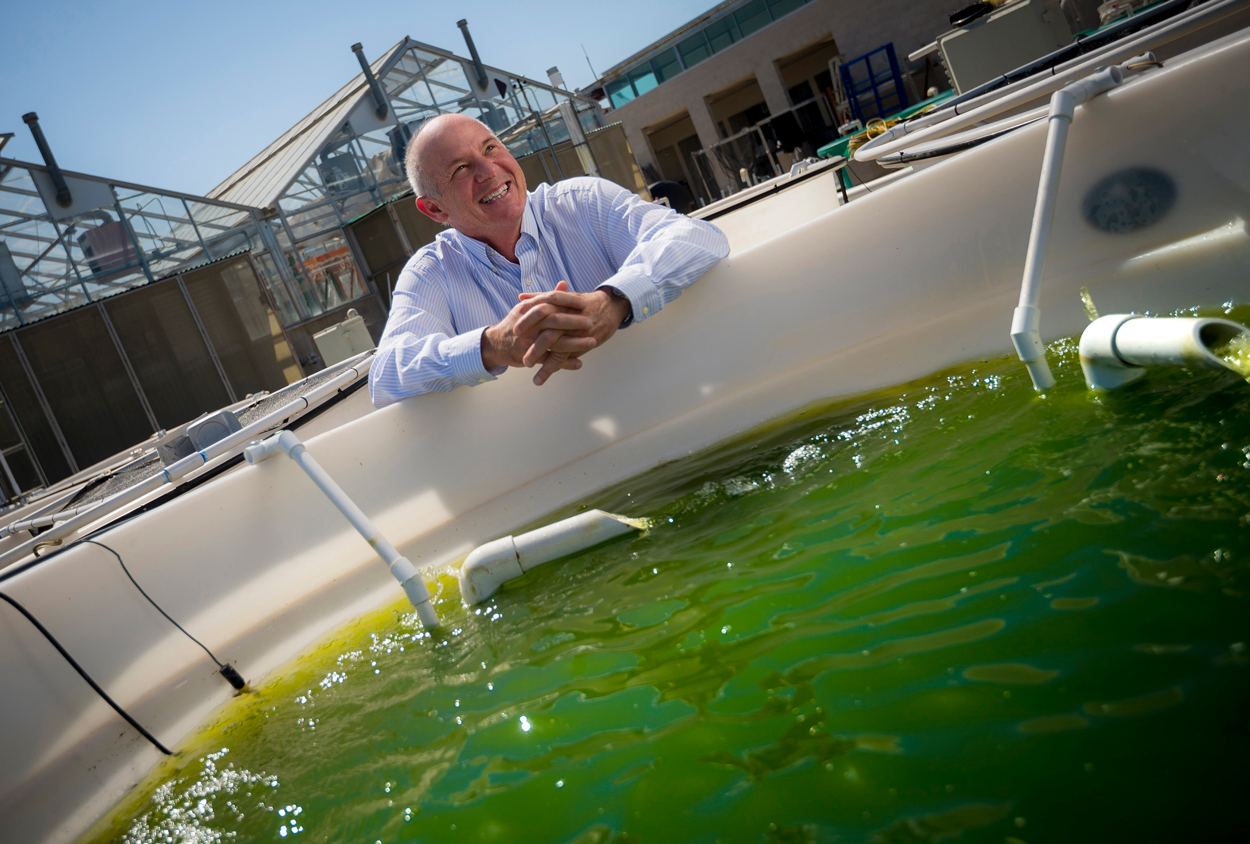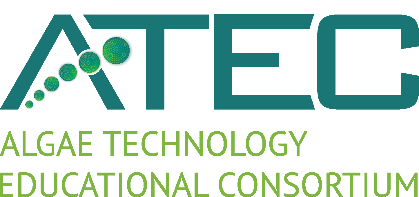Ready for Prime Time: New Public Course Explores the Future of Algae Biotechnology
Online self-paced class covers new algae research and future consumer bioproducts
August 5, 2020
By Mario Aguilera

Professor Steve Mayfield has been studying algae and its potential for a sustainable future for more than 30 years.
Erik Jepsen/UC San Diego Publications
For more than 30 years, UC San Diego Biological Sciences Professor Steve Mayfield has been preaching the virtues of algae. From clean biofuels to sustainable flip-flops to food additives that help with digestion, Mayfield's research lab has explored the unique biology of the tiny green organisms and offered them as real-world solutions for many 21st century challenges.
Now, members of the public can participate in a deep dive into the latest algae research developments and their future potential through a new massive open online course (MOOC). Mayfield and Ike Levine of the Algae Foundation and the University of Southern Maine are offering their Algae Biotechnology course through UC San Diego Online and the Algae Technology Educational Consortium (ATEC).
The course covers concepts in synthetic biology, genetic engineering and metabolic engineering, and how they are used in modern algae biotechnology, along with new algae biotechnology research and tools. The class also explores common bioproducts made from algae, as well algae companies that are using algae biotechnology to create products consumers can buy today.
"Algae technology is producing products that we are seeing more in stores—things like nutraceuticals, food additives and consumer products. People want to know how these are made and students want to know if there will be good jobs in this area in the future," said Mayfield, director of Food and Fuel for the 21st Century at UC San Diego. "Algae are really interesting organisms that can help in many aspect of our lives and people have very little knowledge about them. There was simply no basic class on this available to the general public."
The new course is the second MOOC focused on algae produced by Mayfield and Levine. Their first MOOC, Introduction to Microalgae Biotechnology, was produced in 2018 and attracted more than 10,000 students.
The introductory course attracted global experts and corporations enthusiastic to share the marvels of microalgal-based biotechnology. "Our hope is to serve the global community while elevating algal literacy, interest in algae biotechnology and the algal-based bioeconomy," said Levine.
Mayfield views algae's trajectory on a similar track as the electric vehicle field of a decade ago. At first considered a novelty, electric cars have become a force in consumer sales due to their efficiency and low carbon emissions.
"It was clear they were the future of transportation and it was just a matter of time. Today, electric cars are the fastest growing segment of car sales," said Mayfield. "Algae is poised in the same way. We need to be more efficient in the production of food, feed and bioproducts. No one doubts that. The question is how and when, and algae has efficient sustainable solutions for all of these. The technology is now ready for prime time."
The Algae Biotechnology course is included in a series produced by the Algae Technology Educational Consortium (www.algaefoundationatec.org) and UC San Diego with funding from the Algae Foundation, National Renewable Energy Lab and the U.S. Department of Energy.

